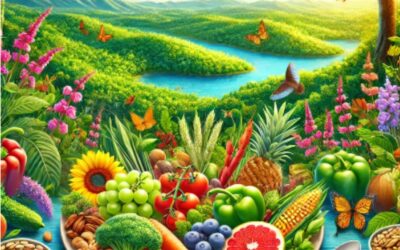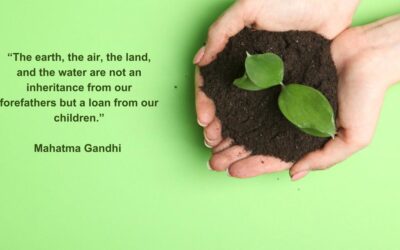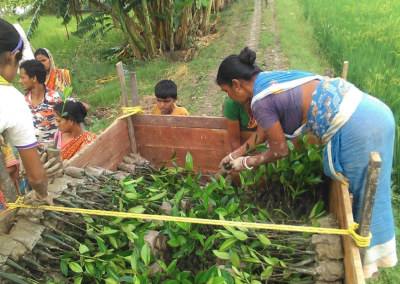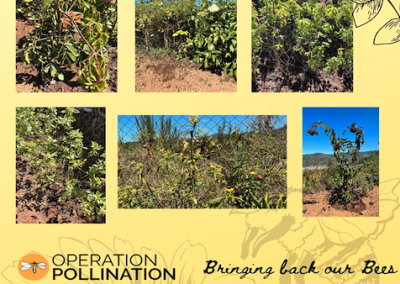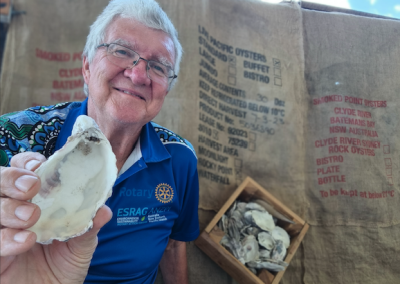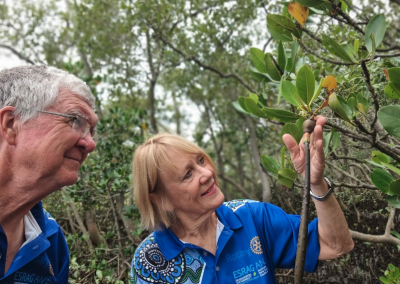THEME
Biodiversity
The term biodiversity (from “biological diversity”) refers to the
variety of life on Earth at all its levels, from genes to ecosystems,
and can encompass the evolutionary, ecological, and cultural
processes that sustain life.
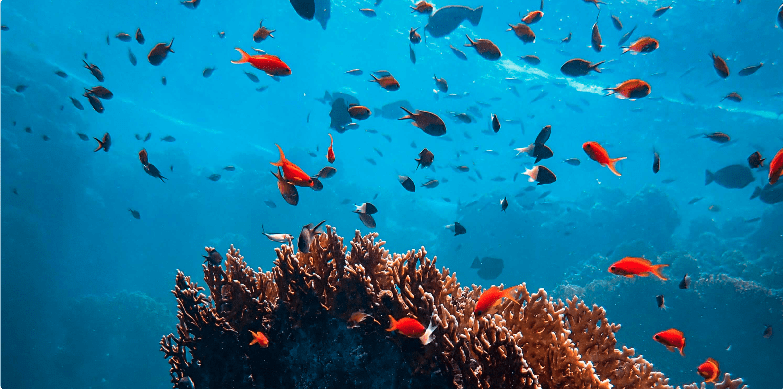
WHAT IS IT?
Biodiversity at ESRAG
How does biodiversity benefit humanity?
Earth’s biodiversity, now suffering catastrophic losses because of human activity, is essential for human communities to survive and thrive. We depend entirely on nature’s ability to provide us with ecosystem services. Here are some examples. Indigenous plants capture water for our aquifers, keep soil fertile, and prevent erosion. Healthy, unpolluted watersheds protect our drinking water. Terrestrial and marine forests sequester carbon and defend us from drought, heat, sea-level rise, and storm damage. A huge share of the human food supply depends on pollinators, and mangroves and coral reefs provide the habitat for our fisheries. Protecting wild habitats from human encroachment reduces our risk of pandemics.
BIODIVERSITY
Learn more
Eating for Earth: How a Plant-Rich Diet Protects Biodiversity
By Joan Marie Gagnon In recent years, the call to adopt more sustainable lifestyles has grown louder, with one particularly appetizing solution taking centre stage: embracing a plant-rich diet. Beyond the well-documented health benefits, such dietary choices play a...
Environmental Stewardship – A Game Changer to Ensure a Clean, Green, Safe, and Better Environment for Sustainable Living
By: PHF PP Rtn Rajendrakumar V. Saraf Environmental Stewardship is defined as being responsible for the quality of the environment for everyone living in it. Environmental stewardship involves conserving natural resources, combating pollution, and protecting...
What Can One Club or District Do? Inspiring Pollinator Projects from Rotarians Worldwide
By Chris Stein, Chair of ESRAG’s Pollinator Task Force On my daily walk through the St. Paul skyways (Minnesota, USA), I pass one of those “Pass It On” signs. One in particular features Nelson Mandela with the quote: “What can one person do?” As a Rotarian—and as...
Take Action on Biodiversity
Through ESRAG, you will discover an array of projects through which Rotarians are protecting biodiversity and advancing many other Rotary humanitarian goals including safe water, community economic development, and health. Examples include regenerative farming, watershed restoration, river clean-ups, planting trees to rebuild soil and provide food, and pollinator gardens. Some of these projects advance resilience and generate new sources of income for communities. For example mangrove projects buffer storms and generate carbon offset credit revenue which communities can use for other needs like education or health care.
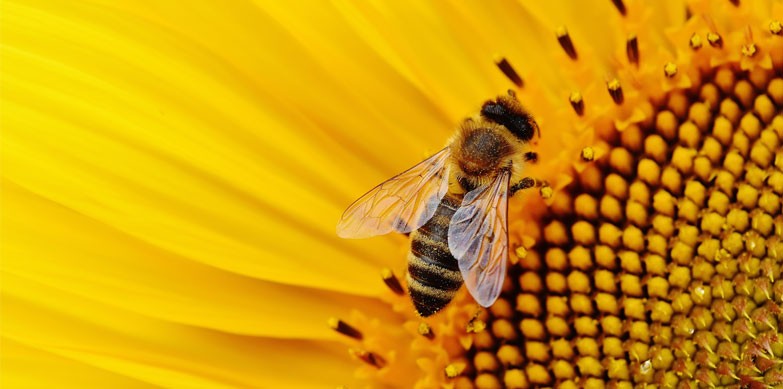
Operation Pollination
Operation Pollination enables and encourages Rotarians to engage in pollinator protection and education projects.
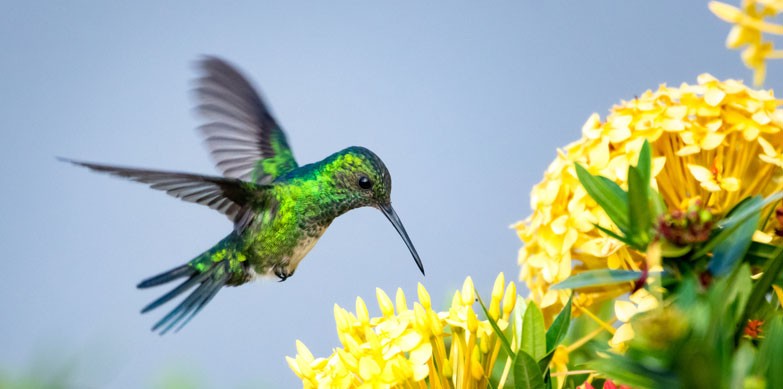
Pollinators
The Pollinator Task Force empowers and equips Rotarians to protect pollinators and educate about their importance.
BIODIVERSITY
Featured Projects
Projects surrounding biodiversity.
BIODIVERSITY IMPACT
Resources
ESRAG’s biodiversity theme brings together their
“Life on Earth” activities into one cohesive unit.
What does life on Earth cover?
This Biodiversity covers four great realms that can be visualized in the diagram below.
Biodiversity of Life
Seeking to slow and stop further loss of species
Ecosystem Restoration
Seeking to restore ecosystem services of the web of life
Sustainable Production
Seeking to produce and harvest resources efficiently
Environmental Resilience
Seeking to establish a sustainable balance between humans and biodiversity
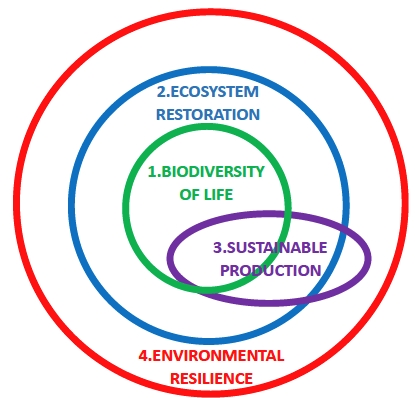
Mission
In keeping with the mission for all Rotary Action Groups, the mission of ESRAG’s Biodiversity Task Force is to explore the different avenues of service that are available to the Rotary Family, and specifically to be engaged with projects for Supporting the Environment.
Primary Actions
BIODIVERSITY
Featured Events
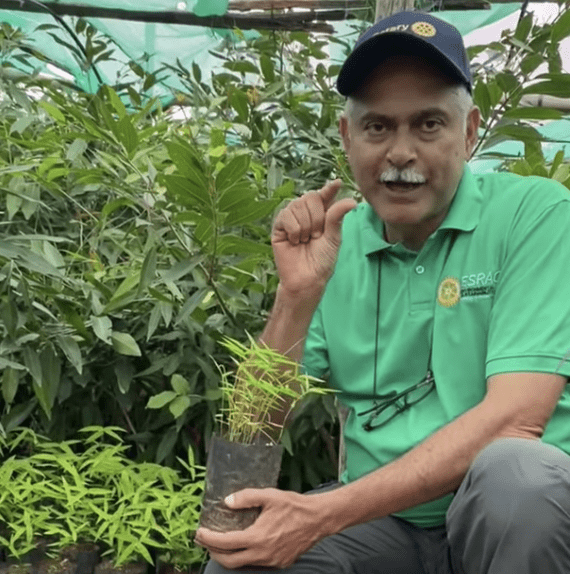
Speaker: Nancy Economou
Topic: literacy, poverty, solar power, renewables
More info
Speaker: Joanne Brasch
Topic: sustainability and circular economy
More info
Speaker: Guity Javid and Brian Gower
Topic: Regenerative Agriculture, tree planting and ecosystem services.
More info

